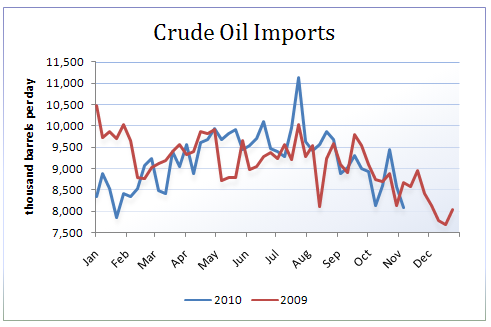Content

Which accounting principles are used depends on the regulatory and reporting requirements of the business. Small businesses hire accountants to advise them on their financial situation and help file taxes. Aside from handling taxes and compliance issues, they can help you optimize budgets, spot opportunities to save, and even apply for business loans. The figures in your reports will look different depending on whether you use cash or accrual basis accounting.

Thus, was drawn the distinction between external and internal reporting. Accordingly, we distinguish between external reporting and internal reporting. This distinction is purely on the basis of the class to which the user of accounting information belongs.
Summarising is the art of making the activities of the business enterprise as classified in the ledger for the use of management or other user groups i.e. Summarisation helps in the preparation of Profit and Loss Accounts and Balance sheet for a particular fiscal year. In accounting, only those transactions, which have monetary value, are recorded.
Characteristics of Accounting:
Accounting software does a lot of the heavy lifting (such as keeping track of debits and credits) for you. However, it’s still important to understand basic accounting principles to know what’s happening behind the scenes. Business owners should be able to enter transactions, reconcile accounts and interpret financial accounting meaning statements accurately. For example, a company has to reference specific time periods in reports and follow the same accounting method across time periods to ensure accurate comparisons. Though small businesses aren’t required to follow the same rules, doing so can help ensure a higher level of consistency.
The ARPL is a coalition of various advanced professional groups including engineers, accountants, and architects. Similarly, a number of other parties use accounting information for the purpose of taking various decisions. They need complete financial and other data in order to analyze the performance of the business enterprises. This is necessary to undertake a comprehensive evaluation of the performance of the undertakings so that they can advise their clients appropriately. For all these exercises, the management needs accounting information. This shows the importance of accounting information in evaluating the performance of the organization and its divisions.
Assets
Managerial accounting uses much of the same data as financial accounting, but it organizes and utilizes information in different ways. Namely, in managerial accounting, an accountant generates monthly or quarterly reports that a business’s management team can use to make decisions about how the business operates. Managerial accounting also encompasses many other facets of accounting, including budgeting, forecasting, and various financial analysis tools. Essentially, any information that may be useful to management falls underneath this umbrella. The reports, statements, etc., are meant for submission to different stakeholders (both internal and external parties/stakeholders) to help them in their decision-making process.

Both the individual and institutional investors comprising of both the shareholders, debenture holders, etc., need information to assess the risk involved and return expected in relation to their investments. Cost control is the guidance and regulation by executive action of costs of an undertaking. It aims at guiding the actuals towards the targets and regulates the actuals if they vary from the targets and this is done through executive action.
Financial Accounting
And those transactions which do not have financial value whether those are important in business are not recorded in the accounting. Interested parties like owners, creditors, management, employees, customers, government, etc. are interested in accounting information. Accounting is very useful in the determination of the profit and loss of a business and showing the financial position of the business. Employees are interested in financial statements on accounts because their wage increase and payment of bonus depend on the size of the profit earned.
- Internal auditing involves the testing of systems to see if they operate as intended, and so falls outside of the traditional definition of accounting.
- In professional practice, trial balances function like test-runs for an official balance sheet.
- Net profit describes the amount of money left over after subtracting the cost of taxes and goods sold from the total value of all products or services sold during a given accounting period.
- Accounting.com is committed to delivering content that is objective and actionable.
- Matos began her career at Ernst & Young, where she audited a diverse set of companies, primarily in consumer products and media and entertainment.
Rarely, the term “trade payables” is used in place of “accounts payable.” Accounts payable belong to a larger class of accounting entries known as liabilities. Cost accounting focuses on a detailed break-up of costs for effective cost control. Managerial accounting is very important in the decision-making process. To accountants, the two most important characteristics of useful information are relevance and reliability. Information is relevant to the extent that it can potentially alter a decision.
A fixed cost (or fixed expense) is a cost that stays the same regardless of increases or decreases in a company’s output or revenues. The term is sometimes used alongside “operating cost” or “operating expense” (OPEX). Revenues and expenses recognized by a company but not yet recorded in their accounts are known as accruals (ACCR).
Importance of Accounting
Accounting information can be developed for any kind of organization, not just for privately owned, profit-seeking businesses. One branch of accounting deals with the economic operations of entire countries. The remainder of this article, however, will be devoted primarily to business accounting. Let’s say a client just paid their invoice online, or money was withdrawn from your checking account to pay a utility bill. Most business owners opt for small-business accounting software to help automate the process and reduce the likelihood of error. When the client pays the invoice, the accountant credits accounts receivables and debits cash.
Our partners cannot pay us to guarantee favorable reviews of their products or services. The history of accounting has been around almost as long as money itself. Accounting history dates back to ancient civilizations in Mesopotamia, Egypt, and Babylon. For example, during the Roman Empire, the government had detailed records of its finances.
It should be simple enough even for a person who is not aware about the rules and terms used in accounting. Some explanatory notes should be given so as to make the information more understandable. As mentioned earlier, accounting information is used by different stakeholders, especially the management, to decide the future course of action for the organisation. We are surrounded by business – from managing our own money to seeing profit statements of big corporations. Using one of the examples above, it is not enough to record that the company paid salaries for April.
Assets, liabilities, and equity accounts are reported on the balance sheet, which utilizes financial accounting to report ownership of the company’s future economic benefits. In the case of Limited Liability Companies, the Cash Flow Statement is also prepared. Proper accounting helps organizations ensure accurate reporting of financial assets and liabilities. Internal Revenue Service (IRS) and the Canada Revenue Agency (CRA), use standardized accounting financial statements to assess a company’s declared gross revenue and net income. The system of accounting helps to ensure that a company’s financial statements are legally and accurately reported. When running a small business, you should choose an accounting software product and consider hiring an accountant.
What Is the Main Purpose of Financial Accounting?
It processes business transactions (inputs) to produce the desired result in the form of reports, statements, etc., (outputs). Many accounting practices have been simplified with the help of accounting computer-based software. These systems can be cloud based and available on demand via application or browser, or available as software installed on specific computers or local servers, often referred to as on-premise. In general Accounting is considered as the language of business throughout the world. In a simple term the language is the means of communication of ideas or feelings by the use of conventionalized signs, gestures, marks and articulated vocal sound. It is effectively employed to communicate the financial performance of business to various interested parties or stakeholders.

All the above and several other questions are answered with the help of accounting. The need for recording business transactions in a clear and systematic manner is the basis which gives rise to Accounting. Classification means statement setting out for a period where all the similar transactions relating to a person, a thing, expense, or any other subject are groped together under appropriate heads of accounts. “the art of recording, classifying, and summarizing in a significant manner and in terms of money, transactions and events which are, in part at least of financial character, and interpreting the results thereof.” Equity accounts deal with income or expenses not directly related to the products or services it provides, such as stocks or retained earnings (money to be invested back into a business).
Accounting is a discipline which records, classifies, summaries and interprets business transactions. Robert Anthony has pointed out — Accounting is the language of business. External users are creditors, investors, banks and other lending institutions, present and potential investors, Government, tax authorities, regulatory agencies and researchers. Journal is the first book of original entry in which all transactions are recorded event-wise and date-wise and presents a historical record of all monetary transactions. It may further be divided into sub-journals as well which are also known subsidiary books. In large business organizations and in corporations, there is a separation of ownership and management functions.
J. R. Batliboi defines Book-Keeping as the science as well as the art of recording business transactions under appropriate accounts. J. Favell, Book-Keeping is the recording of the financial transactions of a business in a methodical manner so that information on any point in relation to them may be quickly obtained. Cost Accounting is that branch of accounting which is concerned with the process of ascertaining and controlling the cost of products or services. The end users of accounting statements must be benefited from analysis and interpretation of data as some of them are the ‘stock holders’ and other one the ‘stakeholders’.

